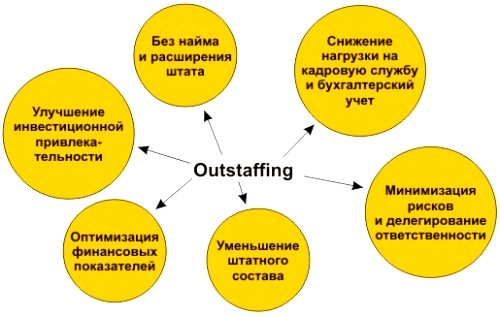Freelance staff are required quite often. Each organization has a certain procedure and its own staffing schedule: the document states what position this or that employee occupies and what is the total number of employees; the schedule also contains information about salaries. Freelance workers have almost the same rights as full-time staff, however, the positions of the former are not listed in the staffing table (in this case, a person can be hired on a permanent or temporary basis). Let's give an example: an employee goes on maternity leave, accordingly, she does not work, and in her place it is necessary to hire a person who will fulfill her duties.
Freelance employee - who is it?
A freelance worker is a specialist hired outside the staff, that is, he is not a permanent employee and is hired temporarily. The purpose of hiring is to perform seasonal, one-time or regular work, the need for which arises periodically. According to the law, you can hire freelance staff in different ways, but in recent years, the most convenient way is to cooperate with agencies that provide services such as staff rental.
An employment contract is not concluded with specialists who are not part of the staff, which means they are not covered by guarantees for wages, vacations and compensation. If personnel are hired through an outsourcing company, then all relations with temporary employees are regulated through it.
What rights and responsibilities do such employees have?
It is necessary to make a small disclaimer that the labor code does not have a form for hiring outside the state. That is why, if an agreement has been concluded with an employee, then he has the same rights and obligations as employees working in the office. But in practice the situation is completely different. Typically, freelancers are needed if the instructions do not provide for this position on the staffing table. But this in no way relieves the employee of the responsibilities assigned to him under the contract.
Pros and cons of freelance staff

Freelance employees and the organization of their work through leasing are, first of all, beneficial to the employer. Among the obvious advantages of hiring temporary labor are:
- Reducing the burden on accounting and HR departments. An outsourcing company handles paperwork, tax payments, and training;
- Saving enterprise resources. For permanent employees, the employer must pay a social package, vacation, and sick leave. Freelance workers receive exactly what is specified in the agreement;
- Guarantee of employee qualifications. Outsourcing companies provide the customer with a performer with the required qualifications. The employer does not need to provide training, check the specialist for professional suitability and the authenticity of his documents;
- Improving labor efficiency. Employees outside the staff are exempt from performing activities that may distract from solving extremely important tasks that affect the status of the organization.
Through outsourcing, a company can hire laborers from among foreign citizens. Registration of migrants outside the state eliminates problems with the migration service, since incorrect preparation of papers and failure to comply with the terms of stay of foreigners in the country can lead to large fines.
The disadvantages of working as a freelancer relate more to the specialist himself, since there are no incentives, vacation pay or sick leave for him. On the other hand, official employment in a company offering outsourcing and outstaffing guarantees demand, but in different enterprises.
Which temporary staff are most in demand?
Temporary personnel are required in various fields, including industry. Temporary staff are often required to formulate and promote new projects due to seasonal increases in workload. To get reliable and responsible staff, an organization needs to choose a good provider. The provider is usually selected based on the experience of other companies: management pays attention to the cost of services, reputation and agencies. There are some challenges that managers may encounter when working with a provider.
Agencies are different, some provide honest, conscientious workers, others may provide personnel that does not meet the requirements of the organization. Some companies complain that the provider does not provide employee services on time. Another problem that management may encounter is frequent changes of employees (in this case, it is necessary to spend additional time training new staff).
Agency clients sometimes complain that the provider provides “the wrong specialists.” However, it is worth remembering: the best specialists in their field do not sit idle, they have long found their place in one or another company and work as full-time employees.
As for the focus of the work of outsurfing agencies, as a rule, they provide temporary staff without qualifications (this includes cleaners, workshop workers, warehouse workers, call center operators, drivers, etc.). Providers are not involved in the selection of managers, IT specialists, and doctors.
Work organization, responsibilities and rights

An employment contract is concluded with employees included in the company's staff, for non-compliance with which they can be punished at the legislative level. If the employee is hired out of state, then a civil document is sufficient. Based on it, there is no need to require SNILS, TIN, education diplomas, or work records from the employee.
The responsibilities of non-staff personnel are specified in the contract:
- Type of services with their detailed description;
- Deadline;
- Reporting nuances;
- Responsibility provided for non-fulfillment, errors, causing material damage;
- Payment and methods of obtaining finance.
The document also reflects the rights of the employee - regime, length of the working day, lunch breaks, weekends, bonuses. A freelancer is not subject to the regulations of the employing company, so when hiring him, you need to take into account the slightest nuances that may affect the quality of services.
When dismissing a freelance worker, there is no need to prepare a separate order. If the assigned task is completed ahead of schedule, then in the contractual relationship clause this fact is simply indicated and confirmed by signatures.
Replacing one employee with another

In some situations, an employee is hired as a freelancer in order to later transfer him to the position of an employee who is about to leave. According to labor law, if an employee is hired for a certain position, but it is not listed in the staffing table, it is necessary to include it in this document.
The inclusion of a new position is necessary to streamline the personnel flow of documents; this measure is also necessary to avoid penalties during inspection. Sometimes you can observe situations where the staffing table has a position whose name differs from the one specified in the employment contract. In this case, on the basis of Art. 72.1 of the Labor Code of the Russian Federation, it is necessary to transfer an employee due to a change in the name of his position. This action must be reflected in the agreement that is attached to the employment contract.
Scope of use of freelance workers
Most often, temporary hiring is in demand in the advertising business, the construction industry, the media, and marketing.
A freelance remote worker can handle accounting and select applicants for a specific position. Outstaffing is popular in situations where it is necessary to perform “seasonal” duties. The use of personal tools and equipment is provided, that is, this can also be considered a plus for the employer. Movers for rent are often in demand when you need to help with an office move or unload and deliver heavy medical devices, machines, and office equipment.

Out of state - no problem
E.N. Ryzhkova, lawyer in the St. Petersburg practice of Pepelyaev, Goltsblat and Partners
Recently, Russian companies have become very widespread in the practice of hiring so-called “non-staff personnel” to perform various types of work.
To optimize business processes, many organizations prefer not to hire full-time employees, but attract third-party specialists - individuals, contractor companies, or enter into agreements with recruitment agencies to provide personnel.
In turn, contractors and staffing agencies hire citizens to do the work. For example, almost everywhere the concern for the cleanliness of office and industrial premises or the security of facilities is transferred to specialized organizations. Sometimes the involvement of freelance personnel may be limited to sending a cleaner from a cleaning company, several security guards from a security agency, or an equipment installer from the organization from which this equipment was purchased. But sometimes, in large companies, especially in subsidiaries of foreign holdings, the work of an entire department can be “outsourced”, and the staff is “rented” for a period from 1 day to several years.
For a company, the benefits of hiring freelance personnel are undeniable. As a rule, “rented” workers are on the staff of a contractor organization or a recruitment agency, and a company that engages such workers under a contract may at any time demand to replace one “leased” employee with another or refuse personnel services altogether. This also allows the company to avoid the hassle of hiring and firing employees, the need to make changes to the staffing table, and also eliminates the need to accrue and pay salaries, vacation pay, etc. However, this “barrel of honey” also has its own “fly in the ointment”, since the involvement of freelance workers potentially creates legal risks of recognizing them as actually being on the company’s staff.
Risks of “freelance”...
As is known, in accordance with current Russian legislation, labor relations between an employee and an employer arise due to the “actual admission of the employee to work” (Article 16 of the Labor Code).
This means that if an employee began work with the knowledge or on behalf of the “employer” or his representative, then the employment contract with him, although not properly drawn up, is considered concluded from the moment the work begins. The work of a “freelance worker,” just like the work of a full-time employee, requires the employee to personally perform duties in a certain specialty or position, and in practice, freelance specialists usually have to comply with the internal regulations of the organization and other local acts of the organization.
This primarily applies to employees with whom civil contracts for work or services are concluded. However, even if freelance workers have labor or civil relations with contractor companies or recruitment agencies, they nevertheless perform work at the location of the customer company, directly subject to the instructions of its full-time employees.
Thus, it turns out that the “freelance worker,” at first glance, has every reason to demand from the customer company the execution of an employment contract and, accordingly, the guarantees and compensation provided for by labor legislation, including the payment of social benefits, the provision of paid leave, etc.
...it is possible to reduce
Of course, in each specific case, if a dispute arises with a freelance worker regarding his recognition as a full-fledged employee of the company, the labor dispute commission or the court considers and takes into account all the circumstances of the work of a particular person. Therefore, a detailed analysis of the situation in relation to each employee is required.
The basic rules that will significantly reduce the company’s risks associated with the emergence of a situation that may threaten potential labor disputes are that, firstly, it is necessary to avoid concluding civil contracts with individuals. The only exceptions are individuals who are individual entrepreneurs. And secondly, one should avoid concluding agreements for the provision of personnel (or personnel rental agreements), since such agreements imply a direct indication that the subject of the agreement is the provision of freelance workers.
If it is necessary to involve freelance personnel, the least “risky” option would be to conclude a contract for work or provision of services with a contractor company or recruitment agency, which will send its full-time employees to complete the task.
We can offer some general practical recommendations, the use of which will reduce the risks of recognizing the relationship between the provided workers and the customer company as labor relations in the event of a dispute in most such cases.
1) It is necessary to ensure that all freelance workers have an employment relationship with the contracting companies or recruitment agencies that provided them.
2) It is preferable that the provision of freelance workers working on one project or assignment in one department is carried out by only one contractor or recruitment agency under a contract for the performance of relevant work or services.
3) Tasks (which are also the subject of an agreement with a contractor company or recruitment agency) performed by freelance workers must be formulated in such a way that they:
- were aimed at achieving a certain material result (for example, the development of a specific program, repair or commissioning of equipment);
- were carried out over a certain (limited) period of time;
- the remuneration of the contractor company or recruitment agency for the work performed by freelance workers or services provided was agreed in advance and depended on the result achieved, the amount of work performed or the time spent by the workers (hourly rate).
4) It is necessary to avoid a situation where freelance workers perform similar functions (one type of work) and work “side by side” with full-time employees of the customer company. For example, an extremely risky situation would be when one accountant, who prepares quarterly reports, is on staff, and next to him, an accountant “rented” from a recruitment agency performs the same functions every day. Most likely, the court, if a dispute arises, will recognize the accountant hired from the agency as actually being on the staff of the customer company.
5) It must be taken into account that no orders should be issued in relation to freelance workers on behalf of the customer company. For example, regarding the subordination of freelancers to employees of the customer company or sending the former on business trips, etc. In order for a representative of the customer company to have a basis for the ongoing management of freelance workers, it can be recommended that contracts with contractor companies or agencies providing personnel include a clause about a customer representative authorized to monitor “the progress and quality of work/service provision.”
6) It is also essential to comply with the principle that freelance workers should not (directly or indirectly) be subject to the requirements of the company’s local regulations, such as internal labor regulations and labor protection requirements. For example, confirmation of the completion of labor safety training by freelance workers should not be recorded in the same documents (logs) where the completion of training by company employees, etc. is recorded. Since the employer of freelance workers is the contracting company or recruitment agency that provided them, then they have the responsibility to ensure safe conditions and labor protection for workers.
7) Work performed or services provided must be accepted according to the acceptance certificate for work performed (services provided). At the same time, it is recommended that the acts describe in sufficient detail the essence of the work performed by the contractor company or the services provided.


We also emphasize that, as noted above, it is not recommended to enter into contracts for the performance of work or the provision of services with individuals who are not individual entrepreneurs, as well as contracts for the provision of personnel.
We conclude a contract for freelance staff
Depending on the type of work performed by contracting companies or recruitment agencies in the interests of the customer company, if a decision is made to engage freelance personnel, it is recommended to enter into civil contracts (for example, contract agreements, assignments or paid services), including the following conditions.
Work agreement
1) It is preferable to formulate the subject of the contract in such a way that it provides for the creation of a certain material result (for example, the development and implementation of a computer program, filling out a database on a certain topic, repairing a device, sorting a batch of goods, etc.).
2) The contract must provide that, based on the results of the work, a bilateral act is drawn up, recording the achieved result based on the accounting form established by the contract (acceptance and transfer of completed work, sorted quantity of goods, etc.).
3) Settlements under the contract must be made on the basis of the results reflected in the bilateral act.
Contract for paid services
1) The subject of the contract for the provision of paid services must reflect the process of carrying out any activity (for example, daily cleaning services, provision of services for driving company cars, consulting services).
2) Payment for services must be made on the basis of a monthly (quarterly) acceptance certificate for services provided, signed by the parties, depending on the time spent on providing the service.
3) The contract can also indicate a representative of the customer company authorized to monitor “the progress and quality of service provision.”
Agency agreement
1) The subject of the contract must be to instruct the contractor to act on behalf of the customer company to third parties and perform actions specified in the contract. For example, this could be “obtaining from the fire inspection authorities a conclusion on compliance with the fire safety requirements of the workshop building... located....” In this case, the freelance worker is given a power of attorney to perform the actions established by the agency agreement with the executing company.
2) The result of the work must be recorded in a bilateral act, which is drawn up on the basis of a report from the performing company.
3) Payment must be made based on the results of completing the assignment, depending on the form of accounting established by the contract (for example, depending on the time spent by the freelancer to complete the assignment, or in the amount of a fixed amount of remuneration for achieving the result).
In conclusion, I would like to stipulate that if a situation arises in a company in which most of the above-mentioned “rules” for attracting freelance personnel cannot be applied, it is recommended, in order to minimize the risks of a labor dispute, to consider the possibility of introducing full-time positions to perform the relevant work.
Types of contracts
A civil contract is concluded if the staff does not have specialists of the classification necessary to perform a specific task. But there are other types of agreements that can be drawn up with a freelancer, these are:
- Agreement for a specified period. It specifies the scope of tasks or the exact deadline for their completion, after which the relationship between the employer and the freelance worker can be considered completed;
- Seasonal agreement. Most often it is signed for a period of 2 months;
- Part-time work agreement. The task is completed by a specialist who is part of the company’s staff.
It is better to get freelance work through an outsourcing company, since it is interested in profitable employment for its staff.
The concepts of “Outstaffing” and “Outsurfing”
In the modern world, there is a term “Outstaffing”, which implies the removal of personnel from the company’s staff and the hiring of a provider who assumes obligations in relation to this personnel. As for employees, everything remains the same for them, except for the entry in the work book.
An organization that orders outstaffing pays the provider an agreed amount for the provision of such services, and it also pays all necessary expenses for the provider’s work related to the maintenance of employees. Outstaffing is widespread because it makes the business easier to manage and reduces the workload for the organization. Tax optimization occurs legally, outstaffing is a convenient method for management.
Outstaffing services are often provided by recruitment agencies involved in personnel selection. In frequent situations, they are faced with fired employees: the agency can easily employ them in any other organization that they have as a client. Outsurfing involves an agency searching for employees to temporarily work in a specific organization. In this case, workers provide their services for a specified period.
Many organizations need non-staff personnel. Temporary staff are often needed for seasonal work, for example, in the hotel business, trade, and construction. In the medical industry, employers are not confident that the provider will be able to provide employees whose quality of work will be at the highest level.
Can a freelancer be sent on a business trip?
Work trips of a freelancer are not considered business trips. Companies are not required to maintain the freelancer’s average salary during travel, pay daily allowances or reimburse expenses.
If the employer nevertheless pays travel expenses for such an employee, then the funds received for these purposes are recognized as income in kind, which, based on paragraph 1 of Article 211 of the Tax Code, is subject to personal income tax.
If the employee himself paid for travel expenses to and from the place of business trip, as well as for accommodation, then he has the right to receive a professional tax deduction. The amount of the deduction is equal to the amount of expenses incurred, which an individual can document.
Read in the taker
How to take into account a “freelance” business trip
Answers to common questions about freelance rights
Question No. 1: I worked under a civil contract, after which I received for my work an amount of money less than what was agreed upon in the agreement. The employer justified this by saying that funds were withheld to pay insurance contributions to the Social Insurance Fund in the event of temporary disability due to a work injury or occupational disease. The contract did not say this; did the employer have the right to do this?
Answer: No, such actions are illegal. The conclusion of a civil contract implies making contributions to the tax (personal income tax), Pension Fund and Social Insurance Fund (insurance contributions), but payments in the event of industrial injuries and occupational diseases must certainly be specified in the clause of the agreement.
Question No. 2: Is it possible to somehow protect yourself in case of concluding a civil contract in case the employer refuses to pay money upon completion of the provision of services to him?
Answer: When you finish fulfilling your obligations, request a work acceptance certificate or a work completion certificate. If the employer refuses to pay for your services, you can file a claim in court and present these two documents as proof that the work was actually performed.






